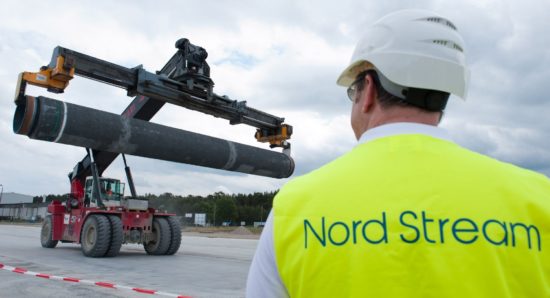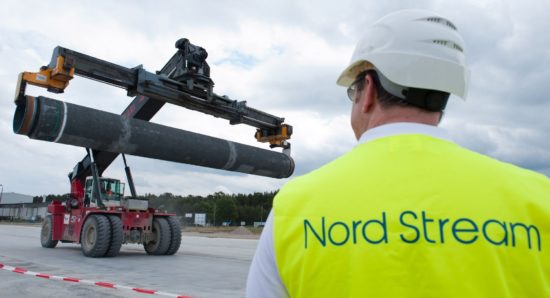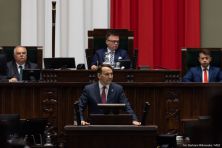
Photo from Ukrinform – UATV
European Union ambassadors in Brussels are to discuss changes to the gas directive, which might complicate the construction of the Nord Stream-2 gas pipeline, now being constructed by the Russian Federation’s state-owned gas company, Gazprom.
According to Espresso TV, the changes to the directive were proposed by Poland.
According to Poland’s proposed changes, all gas pipelines crossing the Baltic Sea, including those belonging to non-EU member countries, would be subject to EU legislation.
Polish Petroleum Mining and Gas Industry Deputy Chief Maciej Wozniak, speaking during a previous meeting of top European energy officials in Brussels, called on the international community to support his country’s efforts to monitor Nord Stream 2.
“Far too often, gas supply has been used as a political weapon. We cannot disarm the impure intentions of others but we can arm ourselves with full legal clarity and consistency of existing legislation,” Polish member of the European Parliament Jerzy Buzek said.
The under-construction Nord Stream 2 pipeline would follow parallel with the older Nord Stream pipeline. With Nord Stream 2 and with its soon to be completed Turkstream pipeline through Turkey, Russia will be able to completely cut off Ukraine as a transit country. This would not only cut $2 to $3 billion dollars annually from the Ukrainian economy (roughly 3 percent of GDP) but it would reduce Ukraine’s geopolitical leverage.
Ukraine has been waging a diplomatic fight against the pipeline and meanwhile has been rapidly ramping up other energy resources including foreign imports, native natural gas, and renewables construction.
S&P Global Platts reports, that Dominique Ristori, director general of the European Commission energy directorate, reaffirmed the EU’s opposition to the pipeline on the grounds it increases Europe’s dependence on one import route belonging exclusively to Russia.
“This is not a project that corresponds with our priorities, namely diversification of supply. This project is the opposite,” Ristori said.
Starting from the end of 2019, the Nord Stream-2 gas pipeline is planned to transport about 55 billion cubic meters of natural gas annually from Russia through the Baltic Sea to Germany.
Most of Eastern Europe and the United States have opposed the pipeline, seeing it as a political weapon for the aggressive Russian Federation.













